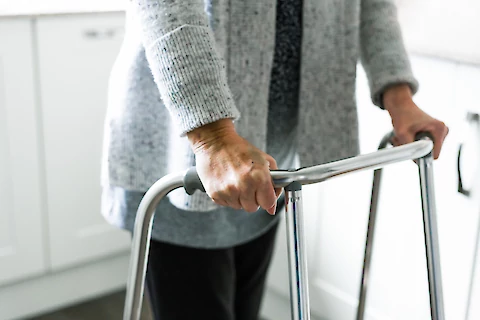
When it comes to the well-being of our seniors, few topics generate as much concern as the risk of falls. As a common cause of injury among the elderly, it's vital to understand the facts about falls to better protect those we care about. Yet, amid concern, misinformation often circulates, leading to unnecessary anxiety and misdirected prevention methods.
Today, we're debunking some of the most common myths about falls among seniors. By shedding light on the truth, we aim to equip caregivers with accurate knowledge and practical strategies to keep their senior loved ones safe.
Let's delve into these misconceptions and pave the way toward safer environments for the elderly.
Myth 1: Falls Are a Normal Part of Aging
It's a common assumption that falling is an inevitable part of getting older. While it's true that seniors are more prone to falls due to factors like balance issues and weakened muscles, it doesn't mean they have to accept falls as a standard aspect of aging. Regular exercise focusing on balance and strength can significantly reduce the likelihood of falls.
Myth 2: If Seniors Limit Their Activity, They Won't Fall
This belief can actually increase the risk of fall-related injuries. Avoiding activity might seem like a good way to prevent falls, but it often leads to weakened muscles and diminished balance capabilities—both vital for preventing falls. However, seniors should be encouraged to stay active within their capabilities. Regular light exercise, like walking or gentle yoga, can make a world of difference.
Myth 3: Home Is the Safest Place for Seniors to Avoid Falls
Our homes might feel like the safest place, but for seniors, potential hazards might lurk in every corner. Everyday items like rugs or clutter can be a fall risk. It's a good idea to take a look around the home: What are the potential hazards, and how can they be remedied? Installing handrails in bathrooms, adequate lighting in all areas, as well as clearing walking areas can make homes far safer.
Myth 4: Over-the-Counter Medications Won't Increase the Risk of Falls
Some people assume that only prescribed medications can impact balance or alertness, but even over-the-counter medications can increase the risk of falls for seniors. Sleep or cold medicines, for example, can cause dizziness or drowsiness. Seniors and their caregivers should also discuss all prescription and over-the-counter medicine with healthcare providers to understand potential side effects.
Myth 5: Using a Walker or Cane Makes Falling More Likely
Some people think that mobility aids can "trip up" seniors and actually cause accidents. The truth is, assistive devices like walkers or canes can greatly reduce the risk of falls. They provide added stability and support. The key is to ensure the device is matched to the individual's height and is correctly used. A healthcare professional can advise on the right device as well as its proper use.
Stay Safe With Senior Helpers
Having the right information about falls and other risks is key to seniors' safety and independence. If you're in Memphis, Bartlett, Germantown, or Collierville and could use professional assistance with creating a safer environment for your senior loved ones, contact us at Senior Helpers Memphis. Providing compassionate and practical in-home care services is our mission, and we're here to help.